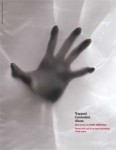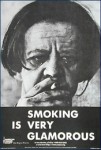Reporters love scary things. It allows them to breathlessly warn about the latest danger or epidemic. This leads them to fail to actually, you know, report.
Here’s an example.
I ran across an article by Rachel Hillier Pratt, the Albuquerque Health News Examiner: One out of four college students use stimulants to get by.
(Now pretty much anybody can be an Examiner — even John English — regardless of their qualifications or sanity, but still this serves as an example of what happens out there.)
So Rachel Pratt says:
Currently one in four college students have used Adderall…
Interesting. But a little bell with the letters “B.S.” written on it was ringing furiously in the back of my head. I know a lot more than four college students, and while I have no illusions that my college friends are all drug-free, Adderall doesn’t seem to be high on the list of preferred substances. Sure, even back in my day of college, there was the occasional little blue speed capsules that made their way around at exam time so I know about the tendency for college students to consider artificial wakefulness assistance, but while I wouldn’t doubt a number of college students use Adderall, the one in four bothered me.
So I clicked on her link to Drug News where I read:
As many as one-in-four college students misused ADHD medications according to a nationwide survey reported in the journal, Addiction.
OK, we already see a divergence from one article to the other. Drug News said ADHD medications, Rachel limited it to Adderall. And then there’s… “As many as…” Not “one in four,” but “as many as one-in-four.” What does that mean?
It reminds me of those TV commercials promoting “as much as 25% off” during their store-wide sale!!! Does that mean everything is 25% off? Of course not.
So I went to the journal Addiction and found the study’s abstract, where I learned about their study of college students in 119 colleges in 2001:
The life-time prevalence of non-medical prescription stimulant use was 6.9%, past year prevalence was 4.1% and past month prevalence was 2.1%. Past year rates of non-medical use ranged from zero to 25% at individual colleges.
So the one in four of self-reported use was at the highest range of colleges (perhaps one college). At the other end was zero. So Drug News could just as easily have said “As few as zero college students misused ADHD medications…” and perhaps then Rachel would have had an article proclaiming that “No college students use stimulants to get by” (it would be as accurate as her article).
This took me less than two minutes with teh Google, and I’m not a science writer like Rachel Pratt.
So what’s the actual story? Among college students self-reporting in 2001, just over 4 percent had used Ritalin, Dexedrine or Adderall non-medically in the past year.
Not as scary and exciting, but true, and a better starting point for, you know, reporting.

 I was too young to really experience the hippy movement. And yes, I wish I had. Oh, I don’t mean that I would have dropped out and joined a commune, but I would have liked to have been there. I did go to college in Iowa in the 1970s, which is about when the 60s reached Iowa, so I got a taste, but to have actually been to Woodstock or Haight-Ashbury…. that would have been something.
I was too young to really experience the hippy movement. And yes, I wish I had. Oh, I don’t mean that I would have dropped out and joined a commune, but I would have liked to have been there. I did go to college in Iowa in the 1970s, which is about when the 60s reached Iowa, so I got a taste, but to have actually been to Woodstock or Haight-Ashbury…. that would have been something. Gil Kerlikowske will be participating in an hour-long online event:
Gil Kerlikowske will be participating in an hour-long online event:  Today, the drug czar
Today, the drug czar  Consider cigarettes. While public perception has changed considerably over the years regarding cigarettes, it seems to me that anti-cigarette advertising had very little to do with it. For most of my friends, this ubiquitous ad actually made them crave a cigarette. (Just as studies showed that the Media Campaign ads against marijuana tended to reinforce marijuana interest.)
Consider cigarettes. While public perception has changed considerably over the years regarding cigarettes, it seems to me that anti-cigarette advertising had very little to do with it. For most of my friends, this ubiquitous ad actually made them crave a cigarette. (Just as studies showed that the Media Campaign ads against marijuana tended to reinforce marijuana interest.) 